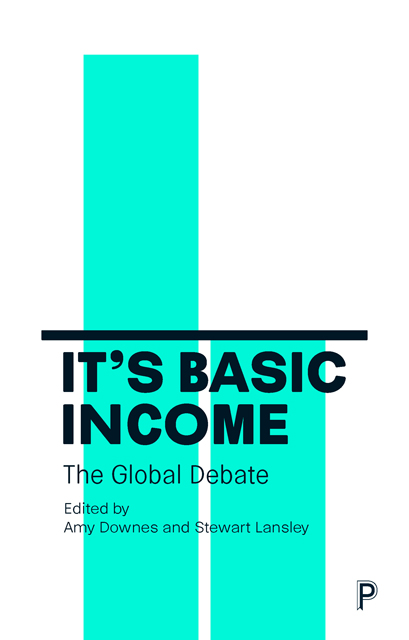2 - Could a universal basic income become the basis for working better in a fast-changing world?
Published online by Cambridge University Press: 11 April 2023
Summary
‘UBI can help achieve the adaptability and flexibility required by the 21st century economy. People will take on the opportunities brought by technology as long as they can afford to leave jobs, take risks and get the relevant training.’
When a London-based start-up in the domain of financial information began using a robo-writer (called Quill) to produce automated reports, its own employees were shocked. The result was so indistinguishable from the one produced by human analysts that many people risk losing their jobs.
If analysts are worried about potentially being replaced by machines, just imagine the apprehension faced by workers doing more manual or routine jobs.
In an article explaining why a universal basic income (UBI) could be a good idea, I framed the discussion precisely in this context of rapid technological change. The fear is that many jobs will be replaced by machines – thus creating ‘technological unemployment’. The idea of UBI is thus gaining momentum as a way of better sharing the dividends of technology-driven economic growth.
A UBI is an unconditional payment granted to every individual as a right of citizenship. People may then work to earn their regular wage on top of that. Although the idea of UBI has been around for centuries, it has never taken off despite pilots in some countries. A main concern is the cost to public coffers. The Economist magazine suggests that we should not bother with the ‘exorbitant’ cost UBI would represent given that a main reason for its introduction, which is widespread technological unemployment, is not a reality yet – and it may never arrive.
The specialists of the weekly have a point. Many economists still believe that the automation of some jobs will be offset by the creation of new jobs, just as has happened in previous industrial revolutions (see Chapter 1). But this is why UBI makes sense. Although we are not at all near the apocalypse of work, we are working differently. People no longer have the linear career paths of the 20th century, with a single long-term employer. Contingent and project-based work are on the rise.
- Type
- Chapter
- Information
- It's Basic IncomeThe Global Debate, pp. 18 - 23Publisher: Bristol University PressPrint publication year: 2018

